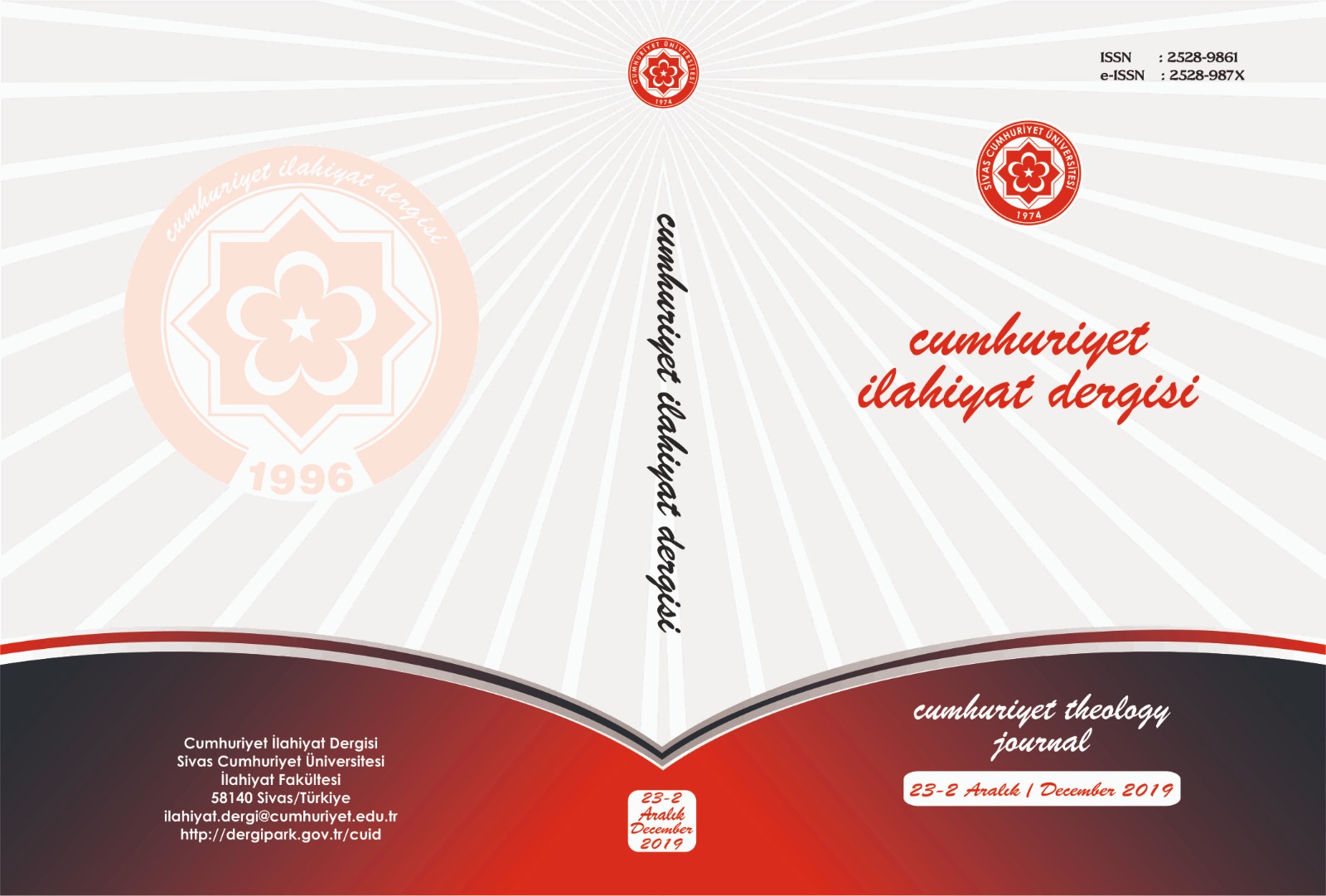Yūnus Emre, Niyāzī-i Mıṣrī ve İsmāʿīl Ḥaḳḳī Bursevī’de Türk Tasavvuf Şiirine Özgü Mażmūn Arayışları
A Searching for Mażmūns (Poetic Themes) Pertaining to Turkish Islamic Literature in the Works of Yūnus Emre, Niyāzī-i Mıṣrī and Ismāʿīl Ḥaqqı Bursawī
Author(s): Mehmet Murat YurtseverSubject(s): Studies of Literature, Theology and Religion, Islam studies
Published by: Cumhuriyet Üniversitesi İlahyat Fakültesi
Keywords: A Searching for Mażmūns; Poetic Themes; Pertaining to Turkish Islamic Literature;
Summary/Abstract: Ṣūfī poetry or dīvān poetry, both of our poems have a universal appeal and a classical value just as the poetry of many nations’. Poets of both groups enhanced the consciousness level of every people one by one and created a virtuous society by taking power from the potential that existed in Turkish society already. If it is needed to mention a difference between those two poetries, it could be that dīvān poetry is a static one and sūfī poetry is more dynamic than the dīvān poetry. While dīvān poetry has a unique World of poetry, sūfī poetry has a feeling of universe shaped by different meanings and concepts. Although dīvān poetry is based on intelligence and pleasure, there is intuitive inspiration and wāridāt in ṣūfī poetry. These become poetic sometimes thanks to similes (tashbīḥ), metaphors (majāz) and allusions (talmīḥ), become verse and gradually turns into a poetic theme (mażmūn). Until today, since the first that comes to mind, when it is said poetic themes (mażmūn), is dīvān poetry, poetic themes of ṣūfī poetry were overshadowed. However, ṣūfī poetry is quite interesting and rich in terms of its poetic themes. Although they are called as just terms, each of the terms of ṣūfī literature is a mystical state (ḥāl), mystical station (maqām) or experience. For this reason, many concepts of ṣūfī poetry, which we call term, could be a poetic theme by taking part in a reference (talmīḥ), simile (tashbīḥ) and metaphor (majāz). The aim of this article, which we can sample under three titles and with the couplets of our three ṣūfī poets, is to draw attention to the existence of a rich mażmūn staff independent of the dīvān poetry of Turkish ṣūfī poetry. The subject of mażmūns belonging to Turkish ṣūfī poetry should be considered important since it has not been mentioned much until today.
Journal: Cumhuriyet İlahiyat Dergisi
- Issue Year: 23/2019
- Issue No: 2
- Page Range: 693-714
- Page Count: 22
- Language: Turkish

